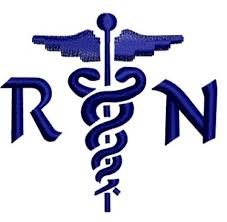The hierarchy of nursing is used in hospitals and other conventional healthcare settings to specify organizational structure.
In addition to years of experience, nurses are graded based on their degree of education and licensure.
The hierarchy of nursing is described as follows.

1. Nursing grade based on years of experience
- Nursing officer 2/ Nursing tutor 2
- Nursing Officer 1/ Nursing Tutor 1
- Senior Nursing officer/ senior nursing tutor
- Principal Nursing officer/ Principal Nursing Tutor
- Asst. Chief Nursing officer/ Asst. Chief Nursing Tutor
- Chief Nursing offOfficerhief Nursing tutor Gl.14
- Assistant Director of Nursing Service- ADNS
- Deputy Director of Nursing Service or Director state- DDNS
- Director of Nursing Service- DNS
Nurses rank based on level of education and licensure
RN Diploma
One of the paths to joining the nursing cadre and hierarchy is to earn an RN diploma. Registered nurses are members of this cadre.
These courses prepare students for the NCLEX-RN and, like the ADN, are normally completed in two years.
The ADN and diploma have major differences, with the ADN being a college degree and the diploma not.
However, technical or vocational institutions may also offer diploma programs, which are commonly offered in hospitals.
Associates Degree in Nursing (ADN)
In the Nursing cadre and hierarchy of nursing, an ADN, a 2-year degree, is the bare minimum of education needed to be granted a license to practice as an RN.
The majority of RNs start out providing direct patient care at the bedside. For nurses who want to advance in the nursing hierarchy and eventually acquire a BSN, MSN, APRN, or DNP, this experience is typically preferred. An RN can pursue a variety of careers, such as case management or cosmetic nursing, outside of the hospital setting.
Bachelors Of Science in Nursing (BSN)
For those seeking to become registered nurses (RNs) or RNs who only hold an associate’s degree in nursing, the Bachelor of Science in Nursing (BSN) is a 4-year nursing degree (ADN).
A BSN is often the next step in the career progression of nurses who begin with an ADN.
Nurses with bachelor’s degrees work in a variety of nursing professions in hospitals. To mention a few, there are cardiac, neuro, pediatric, labor and delivery, emergency room, and intensive care unit.
Read also :Best Underwear for Nurses | With Pictures and Prices
Nursing Director
A director of nursing also referred to as a unit manager, manages specific nursing units and interacts directly with patients, employees, and other stakeholders in the healthcare system.
Nursing Directors are licensed nurses with a minimum of an MSN degree and a business administration concentration. They have extensive experience in the nursing field, as well as various administrative nursing responsibilities and the nursing board room hierarchy.
Master’s of Science in Nursing (MSN)
A MSN helps nurses progress their careers away from the bedside and increase their earning prospects. MSN-trained nurses take on more challenging positions in advanced nursing. Nurses must first get their RN and Bachelor of Science in Nursing (BSN) degrees in order to pursue an MSN.
A few employment options for persons having an MSN degree are listed below:
Director of Nursing, Nurse Manager, Patient Educator, Healthcare Administrator, Patient Safety Director, Quality Improvement (QI) Executive, Professional Practice Director.
Advanced Practice Registered Nurse (APRN)
An APRN is an RN with a master’s degree who also holds a post-certificate master’s or a DNP in one of the four jobs listed below:
- specialist clinical nurse practitioner
- Anesthetist Certified Registered Nurse
The state board of nursing in the state where they practice issues licenses to Certified Nurse-Midwives APRNs.
In many areas, APRNs can independently practice medicine and write prescriptions, but in some states, they must work under the supervision of a medical doctor (MD).
A DNP is not required to be an APRN, though many APRN nurses additionally have one.
One of the nursing cadre and hierarchy is an APRN with a DNP, which is regarded as a practicing doctorate.
Doctor Of Nursing Practice (DNP)
Within the nursing cadre and hierarchy, a Doctorate of Nursing Practice (DNP) represents the highest level of nursing education and expertise.
Working as an Advanced Practice Registered Nurse with a DNP in nursing management or providing direct patient care (APRN).
DNPs implement health policy and have an impact on healthcare outcomes in their capacity as thought leaders.
In the field of medicine, DNPs have worked in:
- Nursing leadership in an organization
- Health-related state and federal policy
- IT in the health sector
Depending on your previous level of nursing education, obtaining a DNP involves three to six years of study. Although some DNP programs start at the BSN level and require extra years of study, the majority of them require that you have a master’s degree in nursing.
Read also : List of the 14 most often prescribed antenatal test in Nigeria
Chief Nursing Officer (CNO)
The Chief Nursing Officer is at the absolute top of the nursing hierarchy and cadre in a healthcare system (CNO). It is necessary for this job to supervise and communicate with nursing departments regarding business difficulties, best nursing practices, and nursing-related concerns. This job is responsible for making sure the nursing department at a hospital runs well.
Being a CNO requires substantial education and training because it is one of the highest administrative positions in the nursing industry. A nurse needs several years of nursing and leadership experience, together with business knowledge gained from working as a mid-level nurse management, to become a CNO. A useful method to acquire this experience is to work your way up to charge nurse and unit director.
A Masters of Science in Nursing (MSN) or above with a concentration on business administration is required for training to become a CNO.
